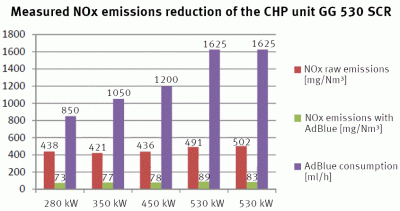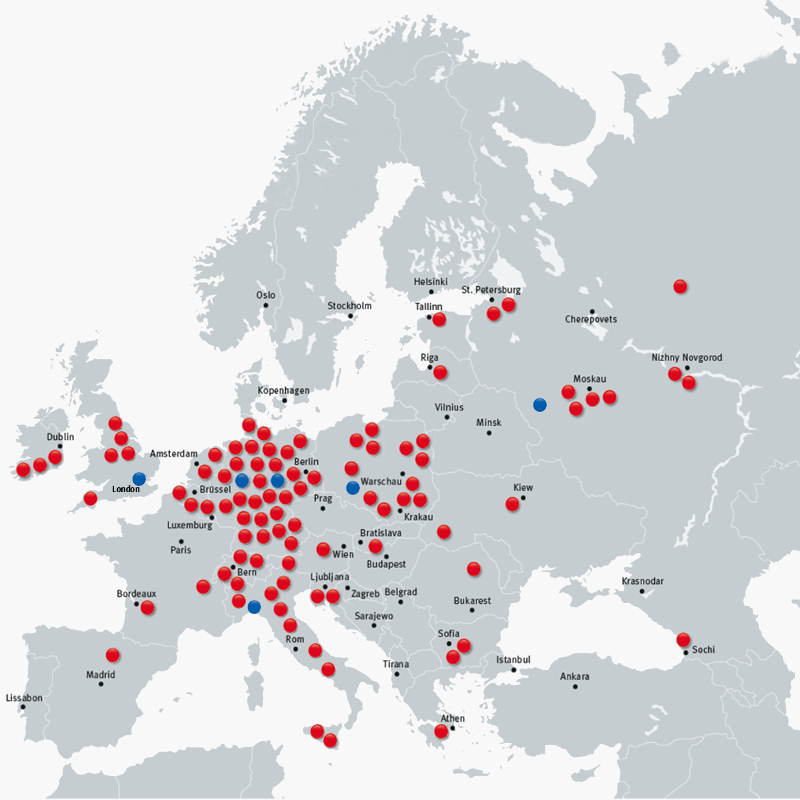Lowest emissions
Already natural gas powered CHP units operate with substantially less emissions than the still dominating energy sources coal and oil. Compared to the conventional seperated generation of power and heat with these fuels, natural gas powered CHP units reduce according to the organization ASUE
- Emissions of nitrogen oxides (NOx) by up to 29 %
- Emissions of dust by 99 % and sulphur dioxides (SO2) by 98.5 %
- Emissions of carbon dioxide (CO2) by 58 %.
The reduction of CO2 emissions is even higher when CHP units are powered with the renewable fuels sewage gas, biogas, biomethane, hydrogen or synthetic methane (SNG) produced from renewable energy sources. To make best use of these advantages of decentral cogeneration we have equipped our natural gas powered CHP units with catalysts and self-calibrating lambda controls right from the beginning.

NOx emissions of the compact CHP unit type GG 530 SCR before and after the SCR catalyst at different loads.
In compact CHP units with aspirating engine (GG 50-260) this is implemented with a regulated 3-way catalyst for the lambda=1 operation which reduces the emissions below the values of the tightened 44th BImSchV (BundesImmissionsSchutzVerordnung or Federal Emissions Protection Act) already today.
For CHP units with turbocharged engine we have developed a solution as early as 2017 to reduce the emissions of nitrogen oxide (NOx) from the then valid limit of 0.5 g/Nm³ to below 0.1 g/Nm³. As a result of this development effort we could exhibit a prototype of the compact CHP unit GG 402 with an SCR catalyst integrated in the sound absorbing case on Hannover Messe 2017.

